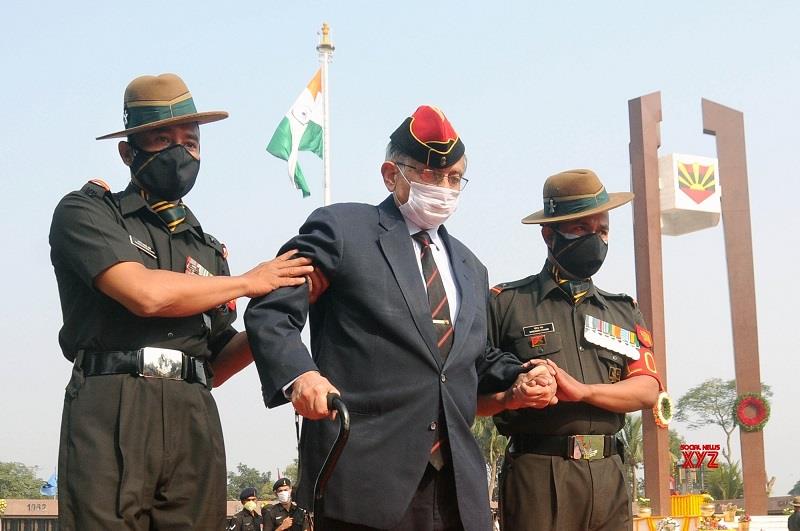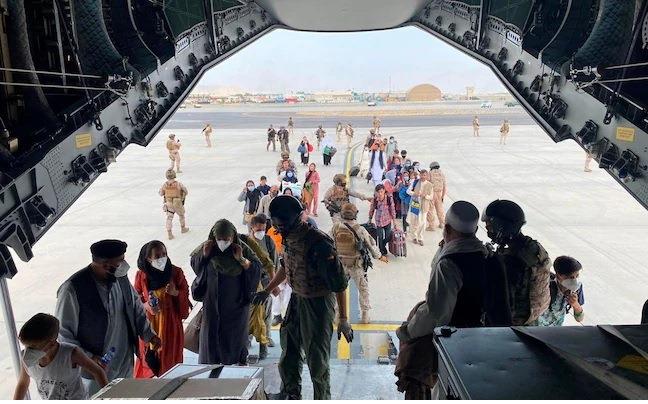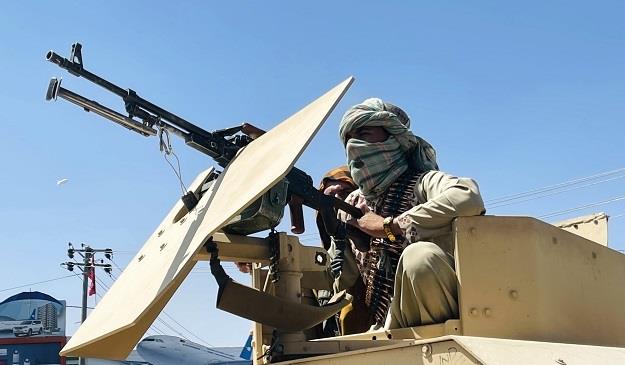(MENAFN- Kashmir Observer)
Army veterans discuss changing scenario in the region and its possible impact on Kashmir
IN a searing summer day in Srinagar this year, Lieutenant General DP Pandey addressed—probably, for the first time—what security analysts had long termed as“elephant in the room”.
With US President Joe Biden setting the final deadline for ending“forever war” in Afghanistan, LG Pandey, the General officer Commanding (GoC) of Srinagar-based Army's 15 Corps, perhaps became the first serving general to talk about the consequences of an impending Taliban victory.
“There's a possibility that US forces pullout from Afghanistan may push some militants into Kashmir,” the general said on the sidelines of a passing-out parade at JAKLI Regimental centre Rangreth in Srinagar, on June 25.
Months later, as Taliban overtook Kabul in a swift move, Kashmir police chief, IGP Vijay Kumar said that in case any foreign element, including Taliban, enters Kashmir, the government forces will deal with the challenge.
“If at all any such thing happens,” Kumar flanked by GoC Victor-Force, Rashim Bali, told scribes on August 21,“I as a police officer assure the people of Kashmir that police, army and the other security forces will deal with the challenge professionally.”
The IGP was replying to a query whether security forces were ready to deal with the situation, if Taliban decides to enter Kashmir.
“While we're ready to deal with Taliban,” a senior sleuth told Kashmir Observer,“our focus will be on the narrative control.”
Analysts say the ripple-effect of the war-torn country always tends to travel to the strife-zone. Following the American departure from Afghanistan, the valley is abuzz with arguments about the possible arrival. What makes these assertions credible for some is the recent statement by military expert, Ayesha Siddiqa:“After victory in Kabul, JeM [Jaise-e-Muhammad] has started to talk about Kashmir again. Looks like after the two victories: USSR and US, now it is India's turn.”
Indian military veterans don't entirely negate this case scenario.
Seconding Siddiqa, former army chief, General Shankar Roychowdhury, remarked that Pakistan— reinforced by the recent Taliban victory—“will make a fresh bid on Kashmir” using groups, such as Jaish-e-Muhammed.
“The victory in Afghanistan is being seen as a Pakistani victory and an Indian defeat,” said the general who commanded 16 corps at the height of militancy in Jammu and Kashmir.
“We have to organise ourselves for a renewed offensive by elements like the JeM and have to be prepared for Pakistani intentions (covert operations) supported by radical elements here.”
Advising political dispensation in New Delhi to change the tack on Kashmir, the general who currently heads a strategic think tank 'Research Centre for Eastern and Northeastern Studies' said:“We have to step up our outreach to Kashmiris, we also have to re-assure them that India will continue to be a secular democracy”.

Ex-Army Chief, General Shankar Roychowdhury
Throwing weight behind his senior's remarks, the general under whose watch the 2016 surgical strikes were conducted said the militant groups operating in Kashmir will have certainly received a psychological boost with the Taliban takeover of Afghanistan.
“There could be some increase in the infiltration attempts, but the border and the Line of Control is strongly held and I do not see a sudden influx of militants who could destabilise the security situation in Kashmir,” Lt Gen DS Hooda (retd), the former General Officer Commanding-in-Chief of the Indian army's Northern Command told Kashmir Observer.
India today has a much stronger frontier posture and presence as compared to the late 1980s when some Afghan fighters entered Kashmir, he said.“The internal security grid is robust enough to deal with any threat.”
Besides Pakistan isn't in a position to divert any fighters from Afghanistan to Kashmir, the general remarked.
“It carries risks for Pakistan not only from India, but also from the international institutions like the Financial Action Task Force (FATF) that is already keeping an eye on Pakistan. India has also demonstrated that it will react strongly to any major militant attack emanating from Pakistan.”

However, there could be efforts to try and exploit the situation while attention seems elsewhere, warned Lieutenant General (retd.) Syed Ata Hasnain.
“Any situation in Afghanistan always has an effect in Jammu and Kashmir,” said the General who used“heart as weapon” doctrine during his Kashmir posting.
“However, our ground domination will ensure this does not manifest negatively or leave any impact. What we need to be careful of is the immediate period before winter this year. Pakistan has a well-oiled recruitment and infiltration system and would wish to put this in place.”
With Taliban's rise, a number of fighters got freed from responsibilities of fighting in Afghanistan, he said.“Since weapons are freely on sale now, so we cannot rule out those who were once part of the Afghan National Army joining in nefarious activity for survival either.”
Kashmir will very much be in the loop of violence and counter-violence, if Taliban wishes to aggregate militant groups to Afghanistan, give them safe havens and“sponsor terror” in the region with the help of Pakistan, Hasnain said.
“Much depends on the line that the Taliban adopts. But it is too early to say anything. The Taliban is seeking international legitimacy and its behaviour and attitude may just be different. We have to keep all options open and must not disturb our grids at this time.”

Most of these military vets said that Islamabad has certainly emerged in a position of“stronger influence” in its“strategic depth”.
This is a dynamic situation, Hasnain said, and will keep progressing.
“We need agile diplomacy of which we are quite capable,” he said.“Taliban is no monolith, it has factions and cliques. We could establish linkages with them and continue to deliver goodwill and soft power to the people.”
Be Part of Quality Journalism
Quality journalism takes a lot of time, money and hard work to produce and despite all the hardships we still do it. Our reporters and editors are working overtime in Kashmir and beyond to cover what you care about, break big stories, and expose injustices that can change lives. Today more people are reading Kashmir Observer than ever, but only a handful are paying while advertising revenues are falling fast.
ACT NOW
MONTHLY Rs 100

YEARLY Rs 1000

LIFETIME Rs 10000
MENAFN24082021000215011059ID1102675074
Legal Disclaimer:
MENAFN provides the information “as is” without warranty of any kind. We do not accept any responsibility or liability for the accuracy, content, images, videos, licenses, completeness, legality, or reliability of the information contained in this article. If you have any complaints or copyright issues related to this article, kindly contact the provider above.